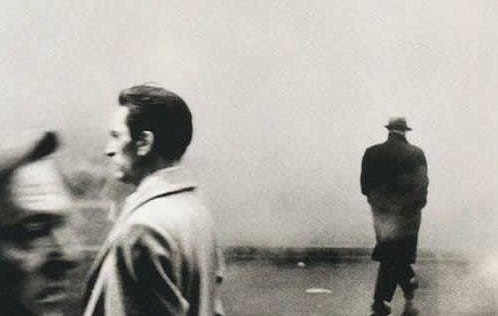Is tomorrow without us?
Today I offer you to start out reading this poem. Wisława Szymborska is a poet of looking, and looking askance. Her poetry addressed existential questions.

Назавтра — без нас
Утро ожидается* холодным и туманным**. | *to expect, **foggy
С запада
начнут перемещаться дождевые тучи*. | *rainclouds
Видимость* предположительно слабая. | *visibility
Дороги скользкие*. | *slick
Постепенно в течение дня
под влиянием северного антициклона* | *high pressure
местами* возможны прояснения**. | *local, **sunshine
Однако при переменном и сильном порывистом* ветре | *gusty
вполне вероятны* грозы**. | *highly likely, **storm
Ночью
погода улучшится по всей* стране, | *across
только на юго-востоке
не исключены осадки*. | *precipitation
Температура заметно* понизится**, | *sharply, **to decrease
зато* давление** возрастет***. | *but, **barometric, ***to increase
Завтрашний день
обещает быть солнечным,
хотя тем, кому жить дальше,
не помешает зонтик*. | *umbrella
Some essential explanations.
ожидается —> ожидать. divide the words into affixes of all kind. What do you see?
о-жид-а-ть
– the prefix “o” prompts that this verb is somehow close to something, around it.
– “жид” being the root leads to “terms for Jewish man and woman respectively
in several Slavic languages”. But don’t be bothered. It is a changed form of the verb… “ждать” (“to wait”).
– the suffix “a” has a really long story and may be boring occasionally. Just I want you to give a hint. When you see this suffix, just know that the word is rather about a unilateral action, something\one does towards another.Чего ждёшь ты?
Я жду, когда подогреется чайник, чтобы сварить кофе.Что ожидает тебя?
Меня ожидает хороший день.
перемещаться —> перемещать
пере-мещ-а-ть
means that you move something.
– the root came from the noun “место” (“a place”)Have you noticed while studying the Russian cases, that you cannot apply the Accusative case if the verb finishes with “-ся” suffix?
Btw, we call such verbs reflexives. It means that the action is targeted at the person or the object (here “grammatical subject”):одеваться – to put on clothes
здороваться – to greet each other
умываться – to wash oneself (in Spanish it seems pretty easy “levantarse”)
or, the object or the person does it so often that we associate this action with, for example:
кусаться – a dog bites
заканчиваться – usually this lesson finishes at 5 pm
My team is a set of books and a good playlist and of course your support. When you enroll in any language course, pay for it but do you feel satisfied with the result? We never know it beforehand. Here I share my understanding of the language and some phrases that will help you to grasp the logic of the Russian language. If you find my tips and ideas useful then…
You might find it difficult to understand the poem. It happens. To read the original poem is the most difficult thing ever for any language enthusiast. Don’t hesitate! Click here to read the English translation of this wonderful poem.Make sure you can answer my following questions (you can answer in Russian or English. it’s up to you today :)
What does the next day promise?
From where rainclouds move?
Is there any possibility to have sunshine today?
In your opinion, what is the idea of this poem?
I’m waiting for you answer that you should send to tweedledee6@mail.ru



